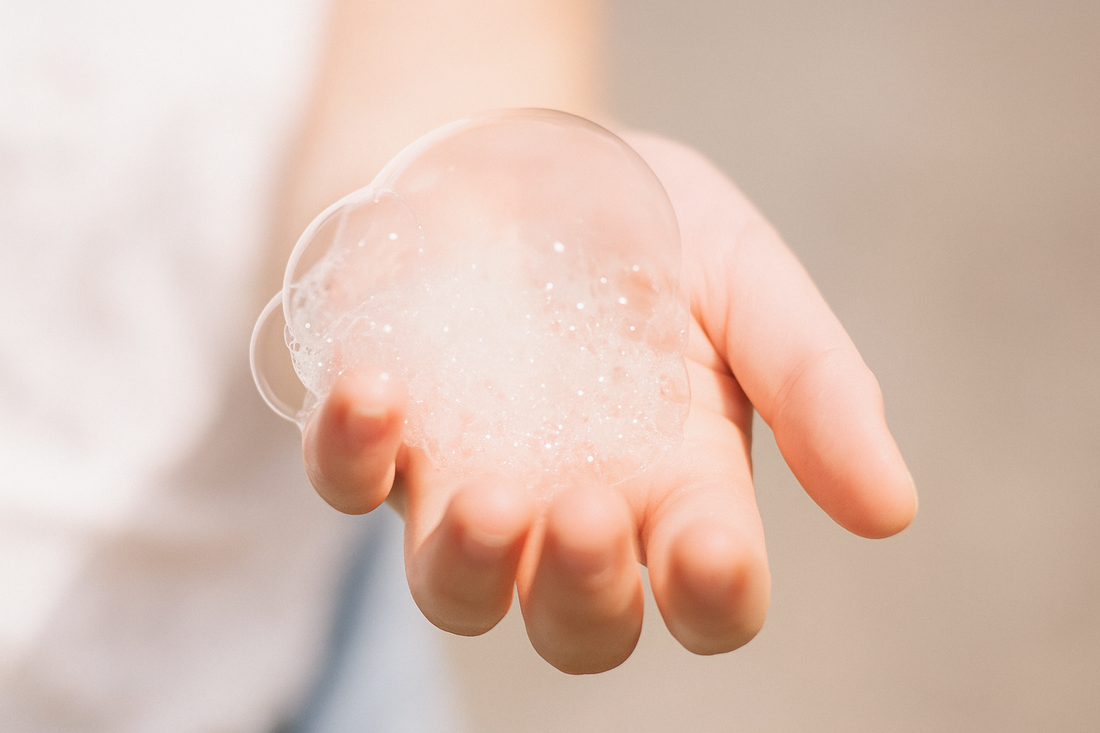What is Lye Soap?
Lye is an essential ingredient in all true soap. All soap contains lye. So what’s the confusion about lye soap? Not all products that we call soap is true soap. Some are made with detergents and other chemicals. Adding to the confusion is the fact that lye soap or true soap is also called natural soap and handmade soap.
So what is lye soap? It’s a product that is created using a recipe that was first devised thousands of years ago. The recipe explains how to mix lye, which is a caustic ingredient, with oils and butters.
The chemical reaction between the lye and the fats produces soap and glycerin. We now call this reaction saponification. Saponification is the reaction that produces lye soap — or, if you prefer, true soap, natural soap or handmade soap.
There are different kinds of lye, each one adds different properties to soap. Sodium hydroxide is used to make solid soap.
Potassium hydroxide is used to make liquid soap. In either case, though, after the saponification reaction is finished, there is no lye left, just soap and glycerin.
By changing the oils and butters in the reaction, you can change the properties (hardness, bubbliness, colour, etc.) of the soap. Plus, by adding exfoliants, colorants and fragrance you can further customize soap any way you like.
Pros and Cons of Using Lye Soap
Pros
Natural soap and water effectively remove dirt from your skin. Lye soaps also contain glycerin which, in a happy coincidence, happens to be a great humectant for your skin. (It’s worth noting that not all lye soaps contain glycerine because some manufacturers remove it and resell it as a raw material for other products.)
Some manufacturers intentionally add a little less lye so that not all of the oils are converted into soap. The leftover oils are called superfats. They can work as a great moisturizing and cleansing agent.
Cons
Unfortunately, not all soap is created equal. Making soap is part art and part science. It is important that the chemical calculations are done correctly, otherwise the soaps remain caustic, and pose a risk of damaging your skin. Always purchase your soaps from a reputable vendor.
Benefits of Lye Soap For Your Skin
Deep Cleansing
Natural soap made with lye is extremely effective at getting stubborn dirt out of your pores, especially when it contains coconut oil and a mild exfoliant.
Natural Ingredients
With a very basic ingredient list of lye, oil and water, natural soap gets a thumbs up from the planet. Its lack of harsh chemicals also means it’s less likely to irritate your skin. Double win!
Exfoliation
Natural exfoliants like fine pumice, poppy seeds, flowers or ground herbs can often be found in natural soap to freshen your complexion.
Moisturizing
Natural soap with superfat and glycerine is known for its excellent moisturizing qualities.
FAQs
Is natural soap good for your skin?
As long as it is blended properly, natural soap is excellent for skin due to its cleansing and moisturizing qualities..
What is soap used for?
Soap is most commonly used for cleansing skin on the face and body, but can also be used to wash laundry or dishes.
Is lye harmful to humans?
Lye is highly corrosive and can cause eye damage and burns to the skin. However, during the saponification process, the lye combines with water and oils and creates soap. Fully cured soap does not contain lye.
Natural soap is safe to use, but making it at home requires caution so make sure you understand how to calculate the recipe properly and don't skip gloves and eye protection.
Is there lye in Dawn dish soap?
Yes - it’s listed on the packaging as ‘Sodium Hydroxide’ - otherwise known as lye. However, it isn’t used for saponification. It is used as a pH adjuster.
What are the side effects of soap?
While natural soap is considered very safe to use, people with sensitive skin might still notice itching, redness or inflammation after use. To avoid the risk of irritation, it's a good idea to perform a patch test on your skin 24 hours prior to use.
Final Thoughts on Soap
Natural soap is a great way to deeply cleanse your skin without damaging it - or the planet!
Properly made natural soaps from reputable vendors are enjoyable to use. If you want to try your hand at making your own soap, remember to exercise caution when you’re handling lye.
